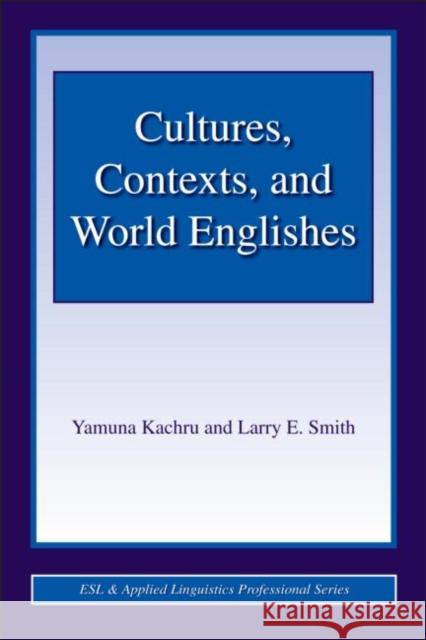Cultures, Contexts, and World Englishes » książka
Cultures, Contexts, and World Englishes
ISBN-13: 9780805847321 / Angielski / Twarda / 2008 / 234 str.
Cultures, Contexts, and World Englishes
ISBN-13: 9780805847321 / Angielski / Twarda / 2008 / 234 str.
(netto: 839,61 VAT: 5%)
Najniższa cena z 30 dni: 856,36
ok. 22 dni roboczych.
Darmowa dostawa!
This volume aims to familiarize readers with the varieties of world Englishes used across cultures and to create awareness of some of the linguistic and socially relevant contexts and functions that have given rise to them. It emphasizes that effective communication among users of different Englishes requires awareness of the varieties in use and their cultural, social, and ideational functions. Cultures, Contexts and World Englishes:
- demonstrates the rich results of integrating theory, methodology and application
- features critical and detailed discussion of the sociolinguistics of English in the globalized world
- gives equal emphasis to grammar and pragmatics of variation and to uses of Englishes in spoken and written modes in major English-using regions of the world.
This volume aims to familiarize readers with the varieties of world Englishes used across cultures and to create awareness of some of the linguistic and socially relevant contexts and functions that have given rise to them. It emphasizes that effective communication among users of different Englishes requires awareness of the varieties in use and their cultural, social, and ideational functions. Cultures, Contexts and World Englishes:
- demonstrates the rich results of integrating theory, methodology and application
- features critical and detailed discussion of the sociolinguistics of English in the globalized world
- gives equal emphasis to grammar and pragmatics of variation and to uses of Englishes in spoken and written modes in major English-using regions of the world.
The Introduction outlines out the underlying sociocultural reasons for language variation and discusses the status and functions of English in various parts of the world. Part one provides the background necessary to appreciate variation in English. Part two presents select features of grammatical and lexical variation to relate sociocultural contexts to the structural features of Englishes. Part three sets out the conventions of language use in the spoken and written modes across cultures. The conclusion briefly discusses topics such as issues of standardization and codification, ideological stances with regard to linguistic imperialism and hegemony, violation of linguistic human rights attributed to the English language, and monolingual and ‘native-speaker bias’ associated with practices in the ELT profession.
Each chapter includes suggestions for further reading and challenging discussion questions and appropriate research projects designed to enhance the usefulness of this volume in courses such as world Englishes, English in the Global Context, Sociolinguistics, Critical Applied Linguistics, Language Contact and Convergence, Ethnography of Communication, and Crosscultural Communication.











